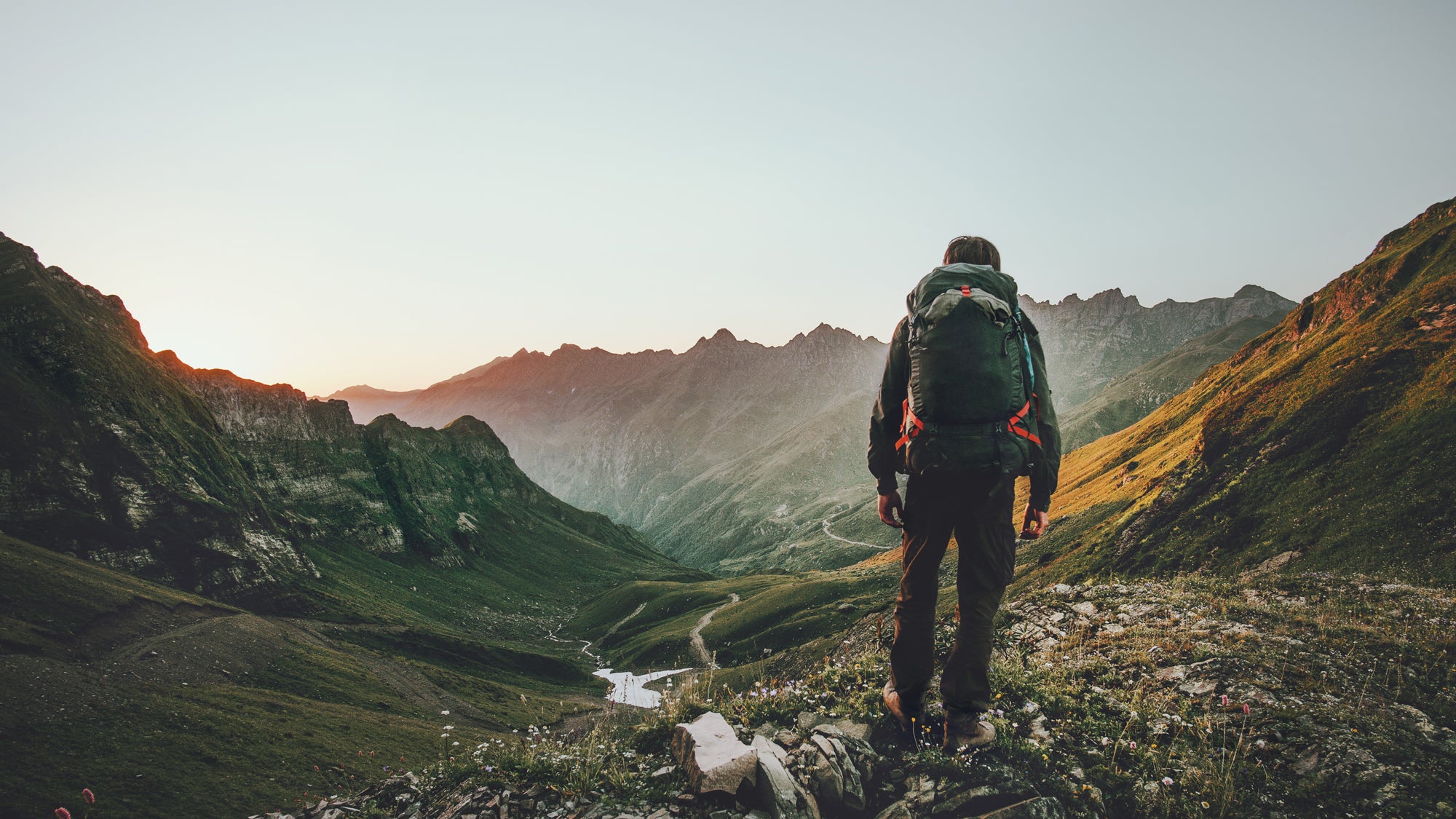Hike Your Way to Stronger Racing

For most triathletes, the best way to capitalize on triathlon fitness after an “A” race is by chasing down a running PR. After all, after completing an Ironman marathon, a standalone 26.2 seems outright easy. But for pro Alyssa Godesky, there’s a better way to put that fitness to use. “The world is so big, and there is so much land out there to explore,” says Godesky of backpacking for endurance athletes. “Triathlon can take us a lot of places, but logistics make it hard to go everywhere. I think it works really well to build into an Ironman and then after the race, use that fitness for backpacking.”
Backpacking, a wilderness adventure combining hiking and camping, is an underrated feat of endurance. It’s slower than a running race or triathlon, to be sure, but that doesn’t necessarily mean it’s easier. Depending on the trail selected, the hike can last anywhere from two days to several months, usually with dozens of miles covered each day. Hikers often carry their own gear and food in packs that can weigh 20 pounds or more, which adds to the physical challenge.
“I do a lot more strength work for backpacking than I ever have for Ironman,” says Godesky. “You will get a fair bit of elevation change on a daily basis while carrying a backpack. There is no doubt that has made me a stronger runner and triathlete.” Many of the training strategies Godesky employed in preparation for her multi-day endeavors, such as hiking and running with a weighted vest, have paid off in her racing endeavors. In addition to boosting her physical performance, Godesky says the time on the trails makes her a more durable athlete, improving her ability to recover from hard sessions and keeping injury at bay.
Backpacking also requires endurance of the mental sort. In addition to pushing through the fatigue of being on your feet for hours at a time, multi-day hikes require navigation skills and attention to detail: Do you have enough water to last to the next spring? Are you rationing your food well? Do you go left at the fork, or right? Mistakes will be made – on a multi-day hike, that’s almost a given – and learning how to adapt and overcome is a skill that is easily transferred to the race course.
The immense satisfaction of completing a backpacking hike can also provide some perspective to carry forward as an athlete: “After doing a multi-day hike, a one-day race can feel short,” says Godesky. “That seems insane to say, but it is true, and it helps me to push hard through the hours I race Ironman.”

Backpacking for Endurance Athletes: Top Tips
- Plan your hike to take place after you’ve recovered from your “A” race of the year. “Triathlon fitness is a great base for backpacking,” says Godesky. “From there, you build the physical strength for the equipment you’ll carry and the terrain you’ll face.”
- If you don’t have the vacation time to tackle the full length of your chosen trail in one go, consider section hiking instead, where you knock off segments of the trail as your schedule allows, returning to civilization in between.
- Just like any training plan, preparation for backpacking should be a gradual build. Start by carrying a five-pound weight in a small backpack (or wear a weighted vest), then gradually build to the full gear you’ll be carrying for the adventure.
- Learn wilderness skills by taking classes in navigation, survival, and first aid at local outfitters or parks departments.
- Don’t think too big! Though much ado is made of super-long hikes like the Appalachian Trail or Pacific Crest Trail, even a two-day adventure in the wilderness is just that – an adventure.
- Remember that hiking isn’t a competition: “A common saying is ‘hike your own hike,’” says Godesky. “The timeline, miles, pace, terrain…that is yours to choose.”